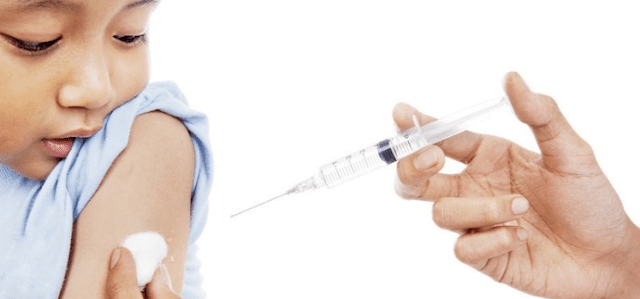Important Vaccinations for Children Aged Between 0-5 Years
All parents are fiercely protective of their kids, and immunization is one way to protect them from health risks. A baby will be protected against many serious childhood diseases if they receive all the recommended vaccinations on time. Immunization is a tried-and-true, risk-free method of ensuring a child's health.
This blog includes the insights shared by Dr. Promilla Butani, a leading pediatrician at Dr. Promilla Butani's Pediatrics Practice, the top baby vaccination clinic in Delhi, about the importance of vaccination and also lists the main vaccinations for children aged between 0-5 years.
One cannot afford to neglect to give their child their vaccinations on time for the following reasons:
Provide Protection from Dangerous Diseases
The primary factor in the "extinction" of some serious diseases is vaccination. This advancement in general health was made possible by vaccinations, which also protected parents, kids, and the community from the debilitating effects of some serious illnesses. Once a child has received the recommended vaccinations, their bodies are better prepared to fight off the disease.
Child Development and Welfare
Syringes and injections may prick the child for a brief period of time, but they prevent serious health problems. By receiving vaccinations on time, one can improve growth and ensure overall health. Getting immunized can be viewed as a wise investment because it prevents the spread of diseases, saves a lot of time and money, and reduces the risk of adverse health effects.
Vaccinations are Secure and Reliable
Vaccinations also help to protect future generations, which is another advantage. Many health-threatening diseases that have historically resulted in death or severely disabled people have been reported to decrease and even disappear due to vaccinations.
Raising a child involves going above and beyond to ensure that they develop into physically, mentally, and even spiritually healthy adults. Immunity and resistance are improved with vaccinations, enabling people to fend off any threats. To make tomorrow safer, it is crucial to immunize them today.
Vaccination Schedule for Kids Aged 0 to 5 Years
Vaccination in First Year
BCG
It is administered intradermally on the left shoulder and protects against tuberculosis (TB).
IPV
Vaccine for injectable polio.
OPV (Oral Polio Vaccine)
Although IPV vaccination is the preferred method, a combination of IPV and OPV will provide better protection.
DTAP/ DTWP Diphtheria, Tetanus Pertussis (Whooping Cough) - Pertussis
Both the aP (acellular pertussis) and wP (whole cell pertussis) vaccines are available. Both vaccines are very effective; the only difference between them is that the "aP" vaccine causes fewer adverse reactions like fever and pain at the injection site than the "wP" vaccine. However, "aP" is extremely helpful in kids who have a history of birth anoxia/trauma, febrile convulsions, etc.
HIB
Haemophilus Influenzae B, also known as HIB, is a bacteria that affects children under the age of five and can result in meningitis, ear infections, and blood infections (septicemia).
Rotavirus Vaccine
To prevent rotavirus-related diarrhea, this vaccine is given orally in 2 or 3 doses before the age of 6 months.
Measles
When the infant is nine months old, either the measles alone or the MMR (German Measles, Mumps, and Rubella) vaccine may be administered.
FLU Vaccine
It starts between the ages of 7-9 months. First-year patients receive two doses spaced 4-6 weeks apart.
Typhoid Conjugate Vaccine
It reduces the risk of typhoid. This might be repeated again within a year or two. No additional doses are necessary.
Vaccination in 2nd year
MMR (Mumps, Measles, Rubella): Given at 15 months
Chicken Pox or Varicella Vaccine: Given at 15 months
PNEUMOCOCCAL VACCINE 1st booster: Given at 15-18 months
IPV, DTaP/DTwP/Hib 1st booster: Given at15-18 months
Hepatitis A Vaccine: Given twice, six months apart, beginning at 18 to 19 months.
Flu Vaccine: Given once a year in a single dose
Vaccination in 3rd and 4th year
Typhoid Conjugate Vaccine
After age 2, the typhoid conjugate vaccine may be given once more. Typhoid vaccination can be given at any age if it has never been done before, and a booster shot can be given after two years.
Meningococcal Vaccine
One of the most severe types of meningitis caused by meningococci is prevented by the meningococcal vaccine. After age 2 and up until adolescence and young adulthood, it is administered in a single dose.
Vaccination in 4 ½ - 5 years
MMR, DTaP + IPV, and Chicken Pox Boosters
Furthermore, any catch-up vaccinations that may not have been administered earlier for any reason.
To learn more about the vaccines, one can consult Dr. Promilla Butani, a renowned pediatrician in South Delhi at Dr. Promilla Butani's Pediatrics Practice.





Comments
Post a Comment